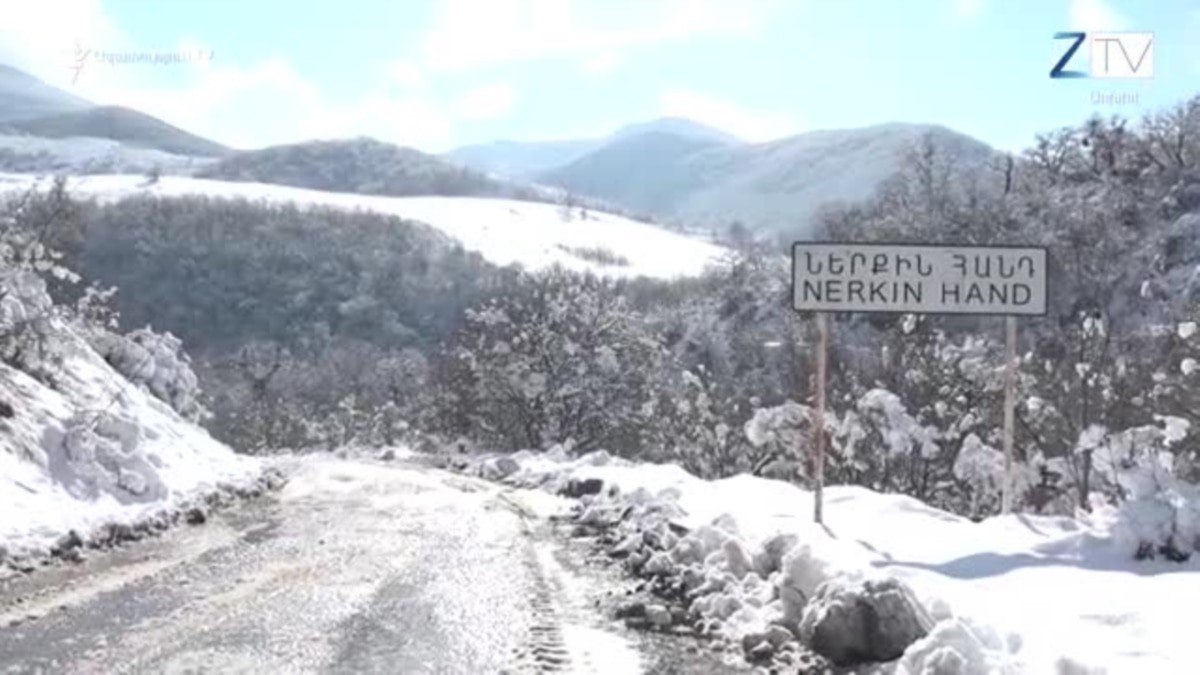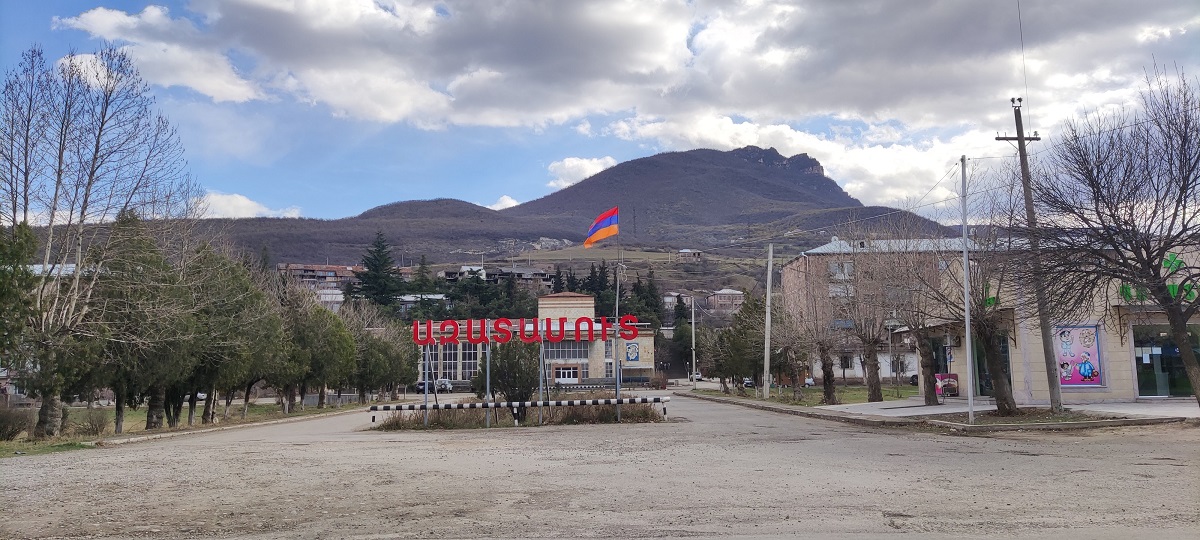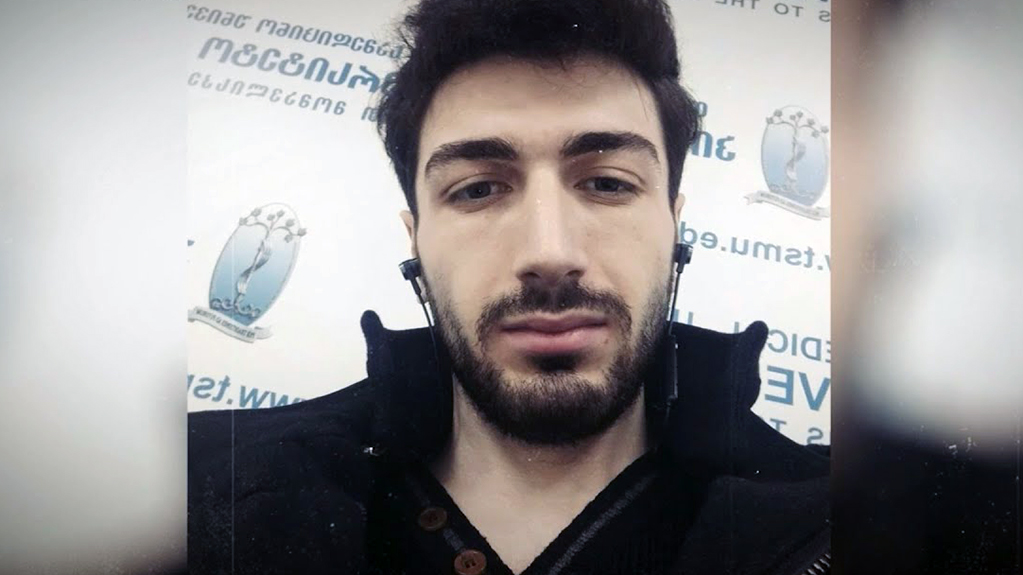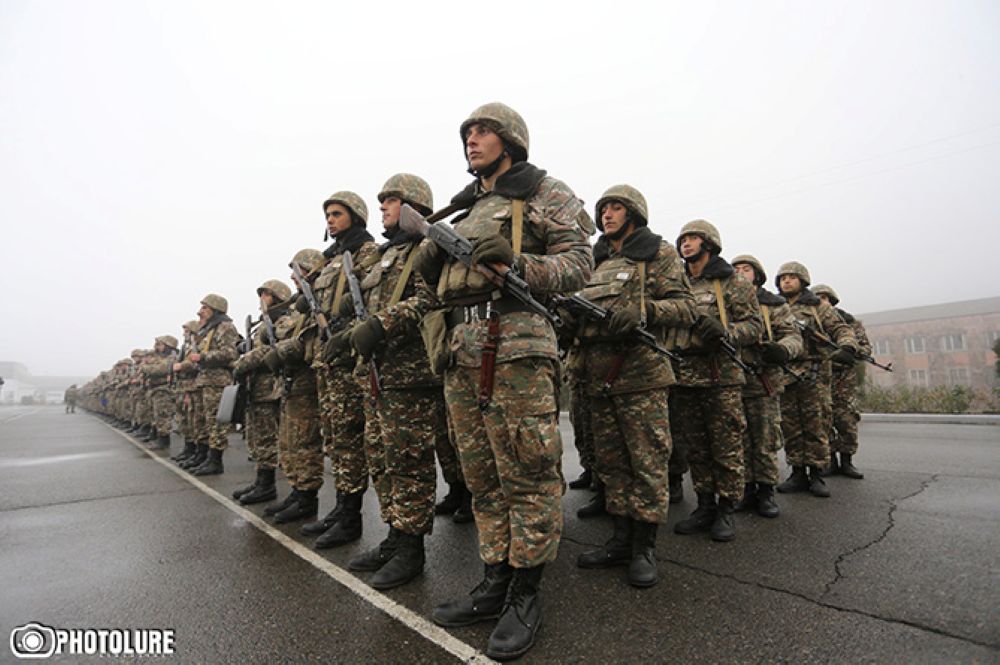"Baku intends to escalate border tensions into full-scale war" - Pashinyan
Pashinyan on Baku’s goals
The prime minister of Armenia stated, “Azerbaijan’s intentions remain unchanged: to pursue a policy of military coercion against the Republic of Armenia.” He elaborated that he reached this conclusion in light of “recent events,” evidently alluding to the recent escalation on the border and President Aliyev’s remarks during his inauguration.
Nikol Pashinyan characterized Baku’s political approach as follows: “Either concede to my demands through negotiation, or I will resort to force.”
During a televised government meeting, the prime minister evaluated Azerbaijan’s recent military operation on the border, provided reasoning for the delay in the delimitation process, and addressed Baku’s insistence on amending Armenia’s legislation. This is how Pashinyan, in his customary working mode, communicates with the public when he deems it necessary to articulate the government’s stance and clarify the situation.
“Another manifestation of a destructive policy”
Pashinyan deemed Azerbaijan’s military operation on February 13, resulting in the deaths of four Armenian soldiers and the injury of one, as “another manifestation of a destructive policy.” He stressed that the punitive operation “Revenge” by the Azerbaijani armed forces was unjustified. Despite Yerevan’s announcement of an investigation into the incident regarding the possible injury of an Azerbaijani border guard the day before, they unleashed “massive fire” towards the Armenian positions of Nerkin Hand.
“We have the impression that Azerbaijan does not demonstrate any interest in ensuring border stability and security,” the prime minister stated.
He elucidated his reasoning, citing numerous factors, beginning with the agreement reached in 2022. At that time, both parties agreed that “border security issues should also be incorporated into the mandate of the border delimitation commissions.”
However, unlike Armenia, Azerbaijan, as Pashinyan pointed out, labeled its commission the “State commission for border delimitation,” excluding the security aspect.
In Armenia, it is referred to as the “Commission on state border delimitation and border security.”
“Azerbaijan is actively avoiding all possible options for conducting delimitation”
The Armenian prime minister stated that Azerbaijan is intentionally evading all potential options for border delimitation:
“Our analysis suggests that there might be one underlying reason for this. That reason could be the initiation of military operations in certain border sections – with the possibility of escalating military tensions into a full-scale war against Armenia. This intention is evident in all of Baku’s statements and actions.”
Pashinyan stressed that the Armenian government’s policy is to utilize active negotiations to “do everything possible to prevent such a scenario, while steadfastly defending all legitimate interests of Armenia.”
He reassured that the Armenian side is prepared to address border issues based on documented and publicly acknowledged agreements on international platforms, specifically, the mutual recognition of territorial integrity, as outlined in the Alma-Ata Declaration of 1991. Hence, Armenia regards this document as the political foundation for delineating the state border with Azerbaijan.
“This implies that we simply need to undertake technical tasks to delineate on maps and the ground the established de jure border between the Armenian and Azerbaijan SSR as of 1991,” Pashinyan explained.
He noted that while Armenia is willing to conduct border delimitation/demarcation “in stages,” sequentially addressing different sections of the border, Azerbaijan is avoiding resolution. Furthermore, Pashinyan suggests deferring the handling of exclave/enclave issues to the final stage, yet Baku “rejects this option as well.”
-
Reference: a brief overview of the enclaves in Armenia and Azerbaijan.
An enclave is a territory situated within one country but legally belonging to another. In general, there exists one Armenian village-enclave within Azerbaijan and eight Azerbaijani village-enclaves within Armenia. These enclaves are all situated in border regions. You can learn more about how these villages became enclaves in the JAMnews article titled “Enclaves – islands of Armenian-Azerbaijani confrontation”.
The Azerbaijani enclaves in Armenia consist of eight villages located in the Tavush and Ararat regions. Seven of these villages were administratively part of Azerbaijan’s border Ghazakh region. They include Sofulu, Barkhudarly, Baghanis Ayrim, Gyzylkhadzhily, Yukhari Askipara, Ashaghy Askipara, and Kheyrimli. Another enclave village, Kyarki (known as Tigranashen in Armenia), was administratively part of the Nakhichevan Autonomous Republic of Azerbaijan.
The Armenian enclave in Azerbaijan is the village of Artsvashen (Bashkend) in the Gedabey region.
TWO CRUCIAL ASPECTS OF THE ENCLAVE ISSUE:
1. One Armenian enclave’s territory is equivalent to the combined territory of all eight Azerbaijani enclaves.
2. Azerbaijani enclaves are strategically situated on key roads in Armenia, linking the north and south. If Azerbaijan were to control these villages, it could potentially block interstate routes. Therefore, Yerevan is not considering a straightforward exchange of enclaves.
“Azerbaijan has no intention of withdrawing its troops from the 31 villages of Armenia”
According to Pashinyan, Azerbaijan intermittently brings up the issue of “the territories of four villages,” yet denies the fact that “the essential territories of 31 Armenian villages are under Azerbaijani occupation.” The prime minister specifically stressed that he was not referring to enclaves.
In this regard, he outlined Yerevan’s “entirely constructive stance”: once the Armenian-Azerbaijani border is accurately delineated on maps and the ground, both countries’ troops must withdraw to their respective territories. Thus, Azerbaijani troops should vacate Armenian territory, and Armenian troops should withdraw from Azerbaijani territory.
“Official Baku is attempting to frame the situation in a manner that Azerbaijani troops will not withdraw from the territories of 31 Armenian villages under any circumstances. This stance is unconstructive,” stated Pashinyan.
“This constitutes interference in the internal affairs of Armenia”
The prime minister views statements made by Baku at the highest level regarding changes in the country’s legislation as interference in Armenia’s internal affairs. Pashinyan considers them to be a “violation of the sovereignty of the Republic of Armenia.”
During his inauguration the day before, Azerbaijani President Ilham Aliyev stated, “If the territorial claims against us are not ceased, if Armenia does not restore its legislation to normal, then naturally, there will be no peace treaty.”
Aliyev is indeed demanding changes to the Constitution of Armenia. The Constitution of Armenia includes a reference to the Declaration of Independence adopted in 1990, wherein the very first paragraph acknowledges the joint resolution of the Supreme Council of the Armenian SSR and the National Council of Nagorno-Karabakh dated December 1, 1989, which concerns “the reunification of the Armenian SSR and Nagorno-Karabakh”.
In response to Aliyev, Pashinyan stated that claims suggesting Armenia’s legislation impedes the signing of a peace treaty are unfounded. He emphasized that this viewpoint is not solely Armenia’s political stance but also backed by expert assessment.
The prime minister recalled that during negotiations, Armenia and Azerbaijan had already reached an agreement on one aspect of the peace accord. As per this agreement, “the parties may not cite their legislation as a reason to refuse compliance with any provision of the peace agreement.”
«Цели Армении легитимны»
Nikol Pashinyan stated that Azerbaijan persists in employing “threatening rhetoric” regarding the reform of the Armenian army and the acquisition of weapons and military equipment. According to Pashinyan, every country has the legal right to possess a strong and combat-ready army, which cannot be challenged by anyone.
“The Republic of Armenia acknowledges the territorial integrity of all neighboring countries and harbors no ambitions beyond its borders. This is our long-term strategy,” he emphasized.
The prime minister regards legitimacy as the foremost component in ensuring the country’s security. He assured that Armenia’s objectives in the defense sector are solely legitimate – the safeguarding of its internationally recognized territories.
“No country has the right to accuse another country of pursuing such objectives,” he emphasized.
Follow us – Twitter | Facebook | Instagram
Pashinyan on Baku’s goals





















